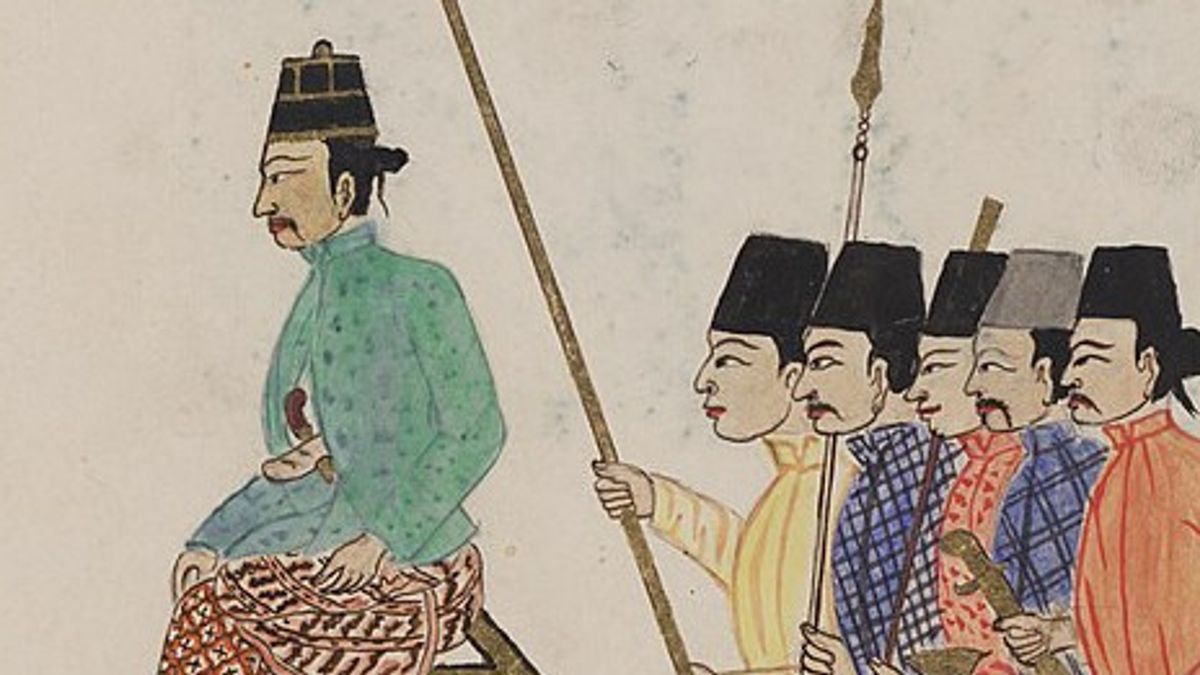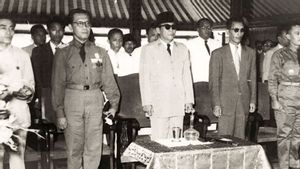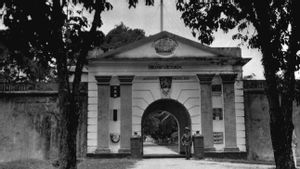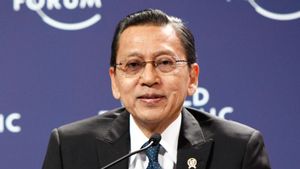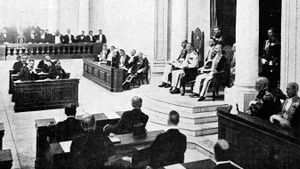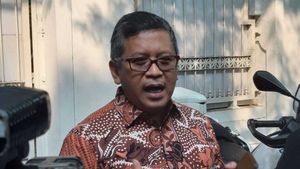JAKARTA Today's history, 315 years ago, September 6, 1708, the Ruler of Mataram, Manangkurat III surrendered to the Dutch trading airline, the VOC. This frustration attitude was perpetuated because his uncle, Prince of Puger and the Company continued to hunt for Manangkurat III.
Previously, Kompeni was known to be good at perpetuating the design of Devide et Impera or politics against each other. This strategy makes the Company gains a lot of money. The owner of power does not need to spend a lot of money and sweat. The Company is enough to make hostility between royal families in the archipelago.
The Company's desire to control the archipelago is indeed great. This confidence is because the Company has its own war fleet like a country. The presence of the war fleet is considered to be a'major weapon' to conquer the regions in the archipelago.
In fact, it is far from wild. The path of war is not a solution. The funds spent were large and the results were insignificant. Moreover, victims from both sides fell a lot. Instead of profit, in fact, the Company actually lost money.
Kompeni's desire to change the strategy surfaced. The Company racked its brains. They then made politics a match against each other as the final move. Since then, the Company has been more patient to control the archipelago. All kinds of information were collected first.
The Company tends to pay attention to regional authorities and with whom they are conflicting. Tactics were played afterwards. The Company was able to approach Prince Bone, Arung Pallaka to fight the Gowa Kingdom led by Sultan Hasanuddin in 1666.
This success did not stop. The Company also complicated the atmosphere of the struggle for the throne of the father and son in the Sultanate of Banten. The VOC chose to side with Sultan Haji to undermine the domination of his father, Sultan Ageng Tirtayasa in 1681.
Kompeni continues to perpetuate political steps. Because, the most profitable. The Company's sweat doesn't come out much. Even the benefits are no less big. They get the monopoly of spices in the region.
With its powerful weapon known in Indonesian History under the name Devide et Impera or politics breaking apart, finally the Dutch colonialists were able to control both the Kingdom of Banten and the Kingdom of Mataram.
The government of Mataram, which during the reign of Sultan Agung Hanakusuma (1613-1645) reached the peak of its glory, because the weapons of Devide et Impera Belanda, eventually split into small kingdoms under Dutch colonial rule. This must be condemned really and used as a lesson from the history of the Indonesian people who want the glory of their homeland," said Sagimun MD in the book Jakarta from the Water Bank to the City of Proclamation (1988).
Evidence that the Mataram Kingdom was divided emerged from the conflict between Manangkurat III and his uncle, Prince Puger. At that time Pangeran Puger felt he deserved to be appointed as King of Mataram rather than his deputy.
However, fate said otherwise. Prince Puger does not want his life to be inhabited by regret. Moreover, Manangkurat III often interferes with his existence. The option of asking the Company for help to defeat Amangkurat III and become the King of Mataram was perpetuated. The First Java Throne War (1704-1708) took place.
Kompeni is happy to help Pangeran Puger fight Manangkurat III. The combined force made Manangkurat III discouraged. Amangkurat III also chose to run away from one place to another. Even though Prince Puger and VOC continued to pursue it.
Finally, after being pressed for Manangkurat III to surrender to the Company on September 6, 1708. The surrender made Prince Puger fall to become the new King of Mataram with the title of Pakubuwono I.
VOIR éGALEMENT:
In 1708, finally Mangkurat III surrendered to the VOC based on the agreement that he was allowed to rule part of Java and did not have to submit to Pakubuwono I. However, the VOC is better at fighting than keeping its promises. Mangkurat III was thrown into Sri Lanka, where he died in 1734. Then a search for the lost heirlooms took place.
Rupanya Amangkurat IIII Either had distributed the heirlooms to his followers, hid them in East Java, smuggled them into exile with him, or merged them. Several heirlooms were successfully brought back to Java in 1737, namely when the sons of Manangkurat III were allowed to return from Sri Lanka. But it is doubtful whether the entire heirloom device has actually been re-collected," explained historian MC Ricklefs in the book History of Modern Indonesia 1200-2008 (2008).
The English, Chinese, Japanese, Arabic, and French versions are automatically generated by the AI. So there may still be inaccuracies in translating, please always see Indonesian as our main language. (system supported by DigitalSiber.id)
